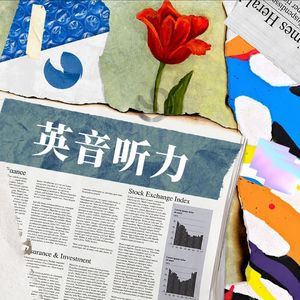The benefits of spending money on life experiences
What's best: a brand new phone or a day out with your friends? Is it better to spend money to buy things or to do things? A study of UK consumers showed that six in ten people would rather spend their money on experiences than material possessions. Those aged 18-34 reported spending the highest amount on fun activities.
Possessions can last for many years, while experiences are fleeting. This, however, might be the wrong way to look at things. Psychology professor Thomas Gilovich discovered that the happiness that objects provide can fade quickly. We adapt to having new possessions, so that rather than being something we are excited by, they just become our new normal. Soon we may even want to buy a better version of the things we own.
Our feelings around possessions can also be affected by others. We tend to compare what we have with other people. If someone else has something better, we can start to feel envious.
A holiday or a day out may have a short duration, but the happiness it provides can last much longer. Waiting for our latest purchases to be delivered is frustrating, but waiting for an exciting event gives us a feeling of anticipation. Experiences are often shared, so we gain pleasure from social connection and time spent with other people.
Memories of our experiences become part of our identity. As Gilovich points out, we are the sum of our experiences. Indeed, the very fact that experiences last for a limited time can give them value. A physical good deteriorates over time, while our memories of an experience can give us pleasure year after year.
Of course, it's not always that simple. Other studies have suggested that happiness gained from experiences might depend on your personality type, and how many possessions you already have. People with more introverted personality types may get less benefit from social occasions and those with few possessions may get greater benefit from objects.
However, for many of us, it could be that when choosing how to spend our disposable income, we'll get far more benefit by spending on something to do, rather than something to have.
词汇表
brand new [brænd] 全新的,崭新的
material possessions [məˈtɪəriəl pəˈzeʃnz] 物质财产
fleeting [ˈfliːtɪŋ] 短暂的,转瞬即逝的
fade [feɪd] 褪色,逐渐消失
new normal 新常态
envious [ˈenviəs] 羡慕的,嫉妒的
duration [djuˈreɪʃn] 持续时间,期间
frustrating 令人沮丧的,令人懊恼的
anticipation [ænˌtɪsɪˈpeɪʃn] 期待,预期
the sum of [sʌm] …的总和,…的集合
deteriorate [dɪˈtɪəriəreɪt] 恶化,变坏
introverted [ˈɪntrəvɜːtɪd] 内向的;内倾的
personality type 性格类型
disposable income [dɪˈspəʊzəbl ˈɪnkʌm] 可支配收入
📖 翻译、pdf见公众号【琐简英语】,回复"1"可进【打卡交流群】


BBC随身英语|把钱花在人生体验上的好处
3分钟 · 1753·
1753· 0
0
 1753
1753 0
0
